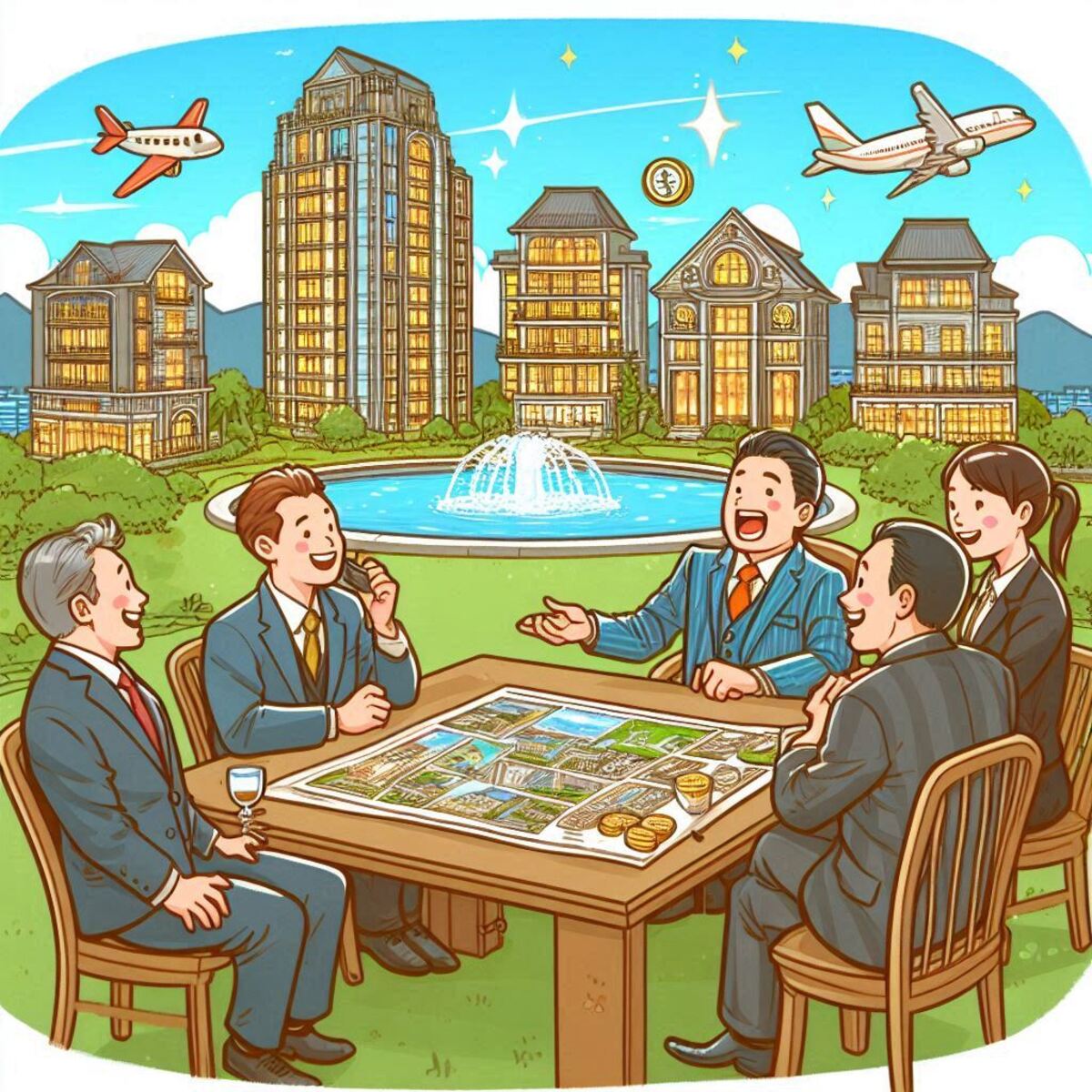“Among all my defensive investments, the one I trust the most is luxury real estate in Japan.”
Said Mr. T, a Hong Kong-born entrepreneur in his 40s.
He owns multiple businesses and investment properties across Asia, with annual revenues exceeding 5 billion yen. Known as an aggressive investor, he has explored a wide range of assets—including stocks, cryptocurrencies, U.S. real estate, and commercial facilities.
The investment for protection was a standalone luxury residence in, Shibuya ward, Tokyo.
His decision was driven by “pragmatic reasons only business owners could truly understand”—reasons that go far beyond simple risk diversification or expected price appreciation.
■ Secure defense to focus on offence.
“In business, victory is achieved by going on the offensive proactively. But when it comes to my personal assets, I stick to defense—I don’t let them shrink. That’s my rule.”
Mr. T suffered major losses in the crypto market a few years ago. Since then, he’s been involved in USD-denominated real estate and Southeast Asian resort developments, but the extreme market swings made it impossible for him to feel at ease.”
Then, he discovered Japanese real estate.
-
Clear ownership rights over land and buildings
-
A stable tax and legal system
-
Predictable rental income with limited downside risk
-
Rather than being a ‘timing the market’ play, it offers the reassurance of being easy to own at any time.
“Luxury real estate in Tokyo is like a stress reliever for entrepreneurs,” he says with a smile.

■ Why a standalone house in Shibuya?
Mr. T chose a relatively new residence in Hiroo, Shibuya Ward, with a total floor area of 260 square meters. The property serves as both a home and an office, offering a completely private space.
“Foreign investors tend to opt for high-rise apartments, but I chose a standalone building. The reason is simple: I can rent it out, live in it, or sell it.”
-
Designed with the flexibility to convert into a lodging facility
-
Layout tailored for foreign visitors’ demand
-
Can also serve as a registered address for his company
-
No costs like management fees or repair reserves fund for common areas.
These features make “hybrid use for both personal and corporate purposes” possible, allowing for tax optimization and estate planning advantages as well.
■ The reality of asset protection power
Mr. T regards luxury real estate in Tokyo as “an ideal asset that doesn’t go down in price.”
-
Minimal currency risk (effective as yen-denominated diversification)
-
Exceptionally low property taxes compared to other countries
-
The total cost of ownership remains low, even with maintenance expenses
-
Japan’s market has a built-in stability and is structurally resistant to overheating.
“I call it an investment, but really, it’s more like an account where you can safely just leave your money parked.”
For him, owning real estate in Tokyo is like having a tangible asset locked safely in a vault.
■ Key advantages of owning property in Tokyo for entrepreneurs
-
Safe asset—something that can be quickly turned into cash when necessary.
-
For international clients and business partners, it represents trust and credibility.
-
Japan’s housing culture is not about showing off wealth, but about quiet ownership.
Furthermore, owning a luxury home in Tokyo contributes to one’s personal brand, he says.
“Where you live says a lot about what you believe in. That’s why I chose the quiet of Tokyo—this home embodies my personal philosophy.”

■ Summary — Asset protection is also a life philosophy.
For Mr. T, owing real estate in Japan is his ultimate line of defense.
It’s not about price or yield—it’s a mental stronghold, a place he knows will never be shaken.
“No matter how busy or exhausted I am, going back to that house resets me. It gives me the clarity to go back on the offensive. To protect is to attack.”
This is how true achievers leverage luxury real estate in Japan.




